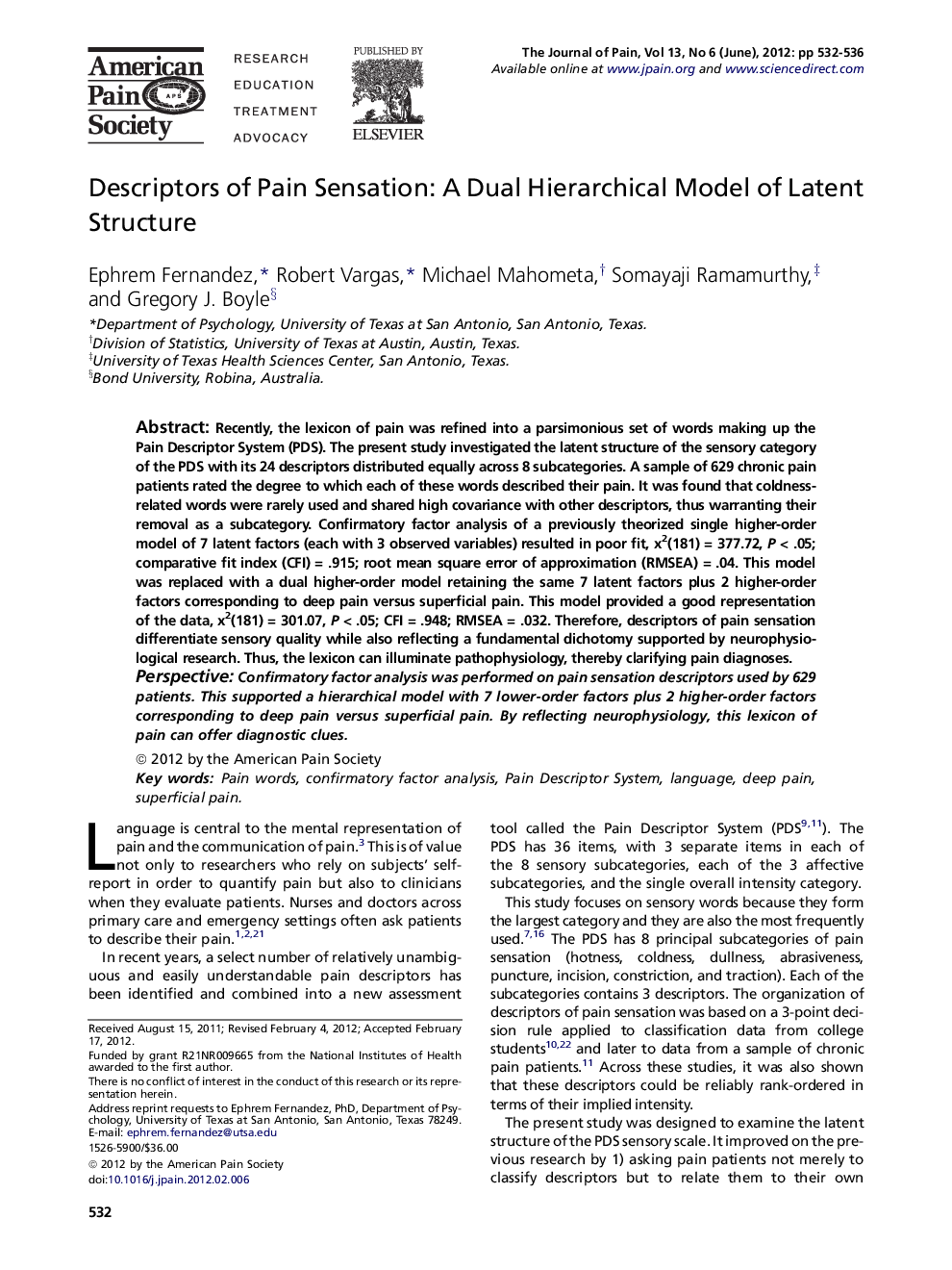| کد مقاله | کد نشریه | سال انتشار | مقاله انگلیسی | نسخه تمام متن |
|---|---|---|---|---|
| 2728851 | 1566772 | 2012 | 5 صفحه PDF | دانلود رایگان |

Recently, the lexicon of pain was refined into a parsimonious set of words making up the Pain Descriptor System (PDS). The present study investigated the latent structure of the sensory category of the PDS with its 24 descriptors distributed equally across 8 subcategories. A sample of 629 chronic pain patients rated the degree to which each of these words described their pain. It was found that coldness-related words were rarely used and shared high covariance with other descriptors, thus warranting their removal as a subcategory. Confirmatory factor analysis of a previously theorized single higher-order model of 7 latent factors (each with 3 observed variables) resulted in poor fit, x2(181) = 377.72, P < .05; comparative fit index (CFI) = .915; root mean square error of approximation (RMSEA) = .04. This model was replaced with a dual higher-order model retaining the same 7 latent factors plus 2 higher-order factors corresponding to deep pain versus superficial pain. This model provided a good representation of the data, x2(181) = 301.07, P < .05; CFI = .948; RMSEA = .032. Therefore, descriptors of pain sensation differentiate sensory quality while also reflecting a fundamental dichotomy supported by neurophysiological research. Thus, the lexicon can illuminate pathophysiology, thereby clarifying pain diagnoses.PerspectiveConfirmatory factor analysis was performed on pain sensation descriptors used by 629 patients. This supported a hierarchical model with 7 lower-order factors plus 2 higher-order factors corresponding to deep pain versus superficial pain. By reflecting neurophysiology, this lexicon of pain can offer diagnostic clues.
Journal: The Journal of Pain - Volume 13, Issue 6, June 2012, Pages 532–536